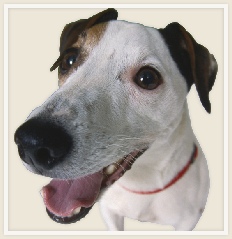




Kennels
& Cattery
01952 740242
Privacy Policy Terms & Conditions Site © Su Carlin 2015 All rights reserved

All cats must be vaccinated against :
Feline calcivirus [FCV],
Feline infectious enteritis (panleucopaenia) [FIE], and Feline viral rhinotrachetis [FVR]
These are commonly combined in a vaccine such as Tricat - which must have been administered within the last 12 months.
Dogs
All dogs should have received a full course of vaccinations (distemper, canine adenovirus, parvovirus, para influenza, as a puppy, followed by full boosters one year later. If dogs have had a break in their vaccination record, for example rescue dogs whose vaccination history is unknown, then the full course should have been repeated.
We insist that all dogs have current vaccinations against : - Distemper [D], Adenovirus (hepatitis) [H], Parvovirus [P], Para influenza [Pi], Leptospirosis [L] and Infectious bronchitis (commonly called kennel cough) [KC].
Distemper, hepatitis and parvovirus vaccines to be administered at least every three years.
Leptospirosis, parainfluenza and kennel cough need to be repeated yearly.
Cats

Rabbits
Rabbits must be vaccinated against myxomatosis and viral haemorrhagic disease (VHD) at least every year dependant on local conditions.

Vaccination Policy
Our Local Authority license states that all dogs and cats boarding with us must have yearly vaccinations. Please read our vaccination policy carefully and if need be discuss your pet’s status with your vet. We reserve the right to turn away pets whose vaccination records are not order - no refunds on boarding will be give and the full amount due remains payable.
All vaccines should be administered a minimum of 3 days prior to boarding.
Kennel Cough F.A.Q.s
Q. How do you protect your dog?
A. By inoculation by your vet.
Q. Why is this not routine?
A. Because it costs extra to the normal domestic vaccinations and has to be requested by the pet owner.
Q. What happens?
A. Live vaccine is administered by running drops down your dogs nose.

A note on Kennel Cough
Kennel cough/infectious bronchitis can occur when a dog comes into contact with highly infectious air borne viruses (such as canine adenovirus, canine parainfluenza virus and coronavirus) and bacteria (such as bordetella bronchiseptica) or by direct contact with an infected dog.
The viruses are inhaled and cause inflammation and damage to the cells lining the windpipe, allowing the bacterial part of the infection to move in. This causes paralysis of the hairs that line the trachea, which normally help to prevent dust and particles entering the lungs. The combination of the effects of the invaders results in irritation of the windpipe, which produces the cough. The more the dog coughs, the worse the problem becomes and there is a chance that bacteria will reach the lungs and cause pneumonia.
Kennel cough/infectious bronchitis is like the flu and different strains exist. Vaccination does not guarantee immunity but should reduce the severity if caught. Kennel cough can be fatal to unvaccinated puppies and old dogs.
Don’t worry if only a few drops go down, or your dog sneezes.
Q. How does the vaccine work?
A. In a similar way to a human having a influenza jab and getting a mild dose of flu, the dog gets a mild dose of Kennel Cough, so your dog will be infectious for a period of time following vaccination. The life of the mild dose is dependent on the administered drug, some are live for 3 days and some can be live for as long as 5 weeks. Obviously the live period must have passed before a dog can be accepted into kennels. Always check with your vet if you have concerns.
Sunmymead Kennels only accept dogs that can show proof of current Kennel Cough inoculation. Please allow at least 3 clear days before boarding if using the Nobivac KC or Canigen KC vaccines or 5 weeks if using the Bronchishield vaccine.
| Kennels |
| Cattery |
| Creature Comforts |
| Room Service Menu |
| Vaccinations |
| Boarding Contract |
| About Us |
| Haneslau Dogs |
| Sunnymead Smallholding |